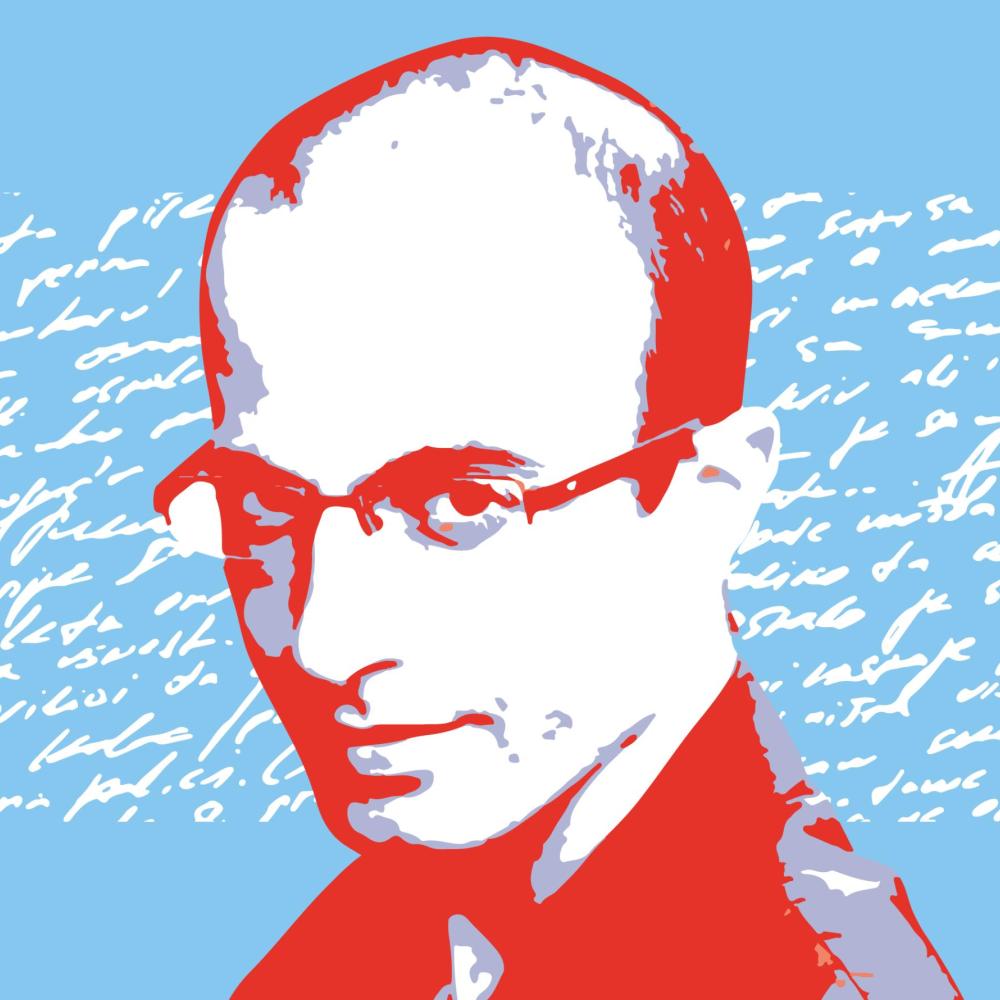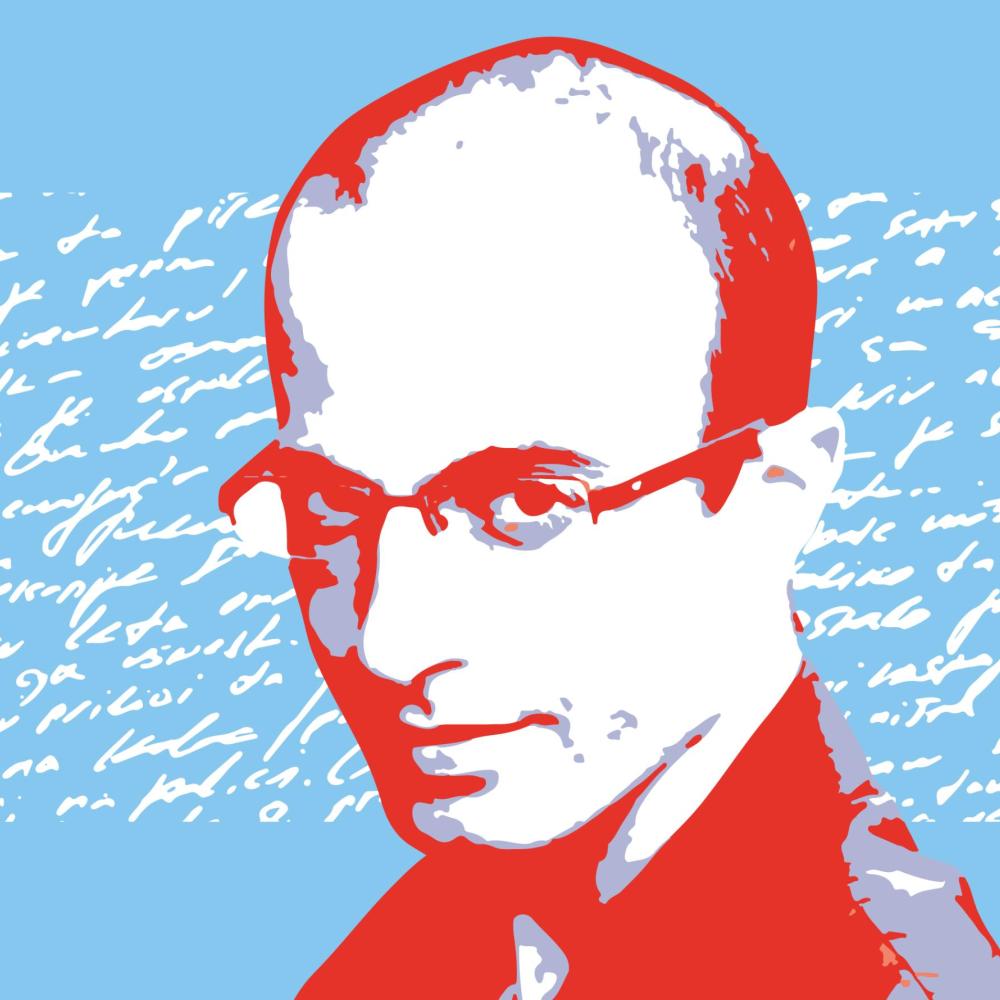

Yuval Noah Harari (°24 februari 1976)
Profession: historian, philosopher, futurologist, author
Nationality: Israeli
Why an honorary doctorate?
(R)evolutionary thinking
27 January 2020. In the packed Antwerp Lotto Arena, Yuval Noah Harari receives the honorary doctorate of VUB.
The basis for this is his many years of in-depth work on the past and future of us, humans, mankind. His critical view of technological evolutions made the world think and took away some of the blinders. Great thinkers like Harari are essential for education, says VUB Rector Caroline Pauwels.
After all, doesn't science begin with questions? Are these questions not crucial to the future of our children? It is the young people of today who will help shape tomorrow, in so many ways. Well-informed and astute citizens are needed to move policy-makers in the right direction of evolution, respecting equality. Harari is a relevant source of inspiration for the old, the young, and the even younger. VUB dedicates the honorary doctorate to every 21-year-old of the 21st century.
You won’t find equality everywhere. Where ideas and opinions meet, cohesion is rarely to be found. But disagreements and contradictions need not necessarily be pejorative. They also make us think, re-evaluate, and fine-tune our critical eye. They provide material for rich discussion and ward off mediocrity. Consistency: a playground for dull minds.
“Consistency is the playground of dull minds.”
About his career
The writing scientist
24 February 1976. In Kirjat Ata, a suburb of Haifa in Israel, Yuval Noah Harari is born. He grows up in a non-religious Jewish family. Harari's hunger for knowledge leads him to the university benches, where he also earns a doctorate after his studies. It is 2005 when Harari starts work as a professor at the Hebrew University in Jerusalem.
Yuval Noah Harari is an unknown quantity to the general public, a gifted scientist certainly, but not yet world-famous. Until he starts publishing books in 2014. Sapiens: a brief history of humankind, Homo Deus: a brief history of tomorrow; 21 lessons of the 21st century and Sapiens: a graphic history catapult him to the shelf of bestsellers.
The red thread running through his writing is the danger of the fusion of biotechnology and information technology; that intelligent organisms - like us - may be overtaken by their own creations.
In his books, Harari describes the world from the earliest evolution of man to the distant future, 2050, 2100. According to him, the world changes every 7 to 10 years and this is always accompanied by a culture shock. "How many times can a human being adapt in one lifetime?"
He sees emotional intelligence as an area to be exploited, a new subject at school. Because you need EQ to keep up with the rapidly changing world.
Harari makes strong statements. That artificial intelligence can be a danger to freedom and equality, for example. That it can make people redundant and that the poorer lower class will have to pay the price for the richer upper class. His claims earn him the stamp of prophet of doom and pessimist.
The bright minds who develop technologies mainly emphasise the positive aspects of their inventions, according to Harari. Among other things, he sees it as his job to show the other side of the coin. According to him, in the future it will be possible to hack a human being. Algorithms will reveal what he thinks and what he wants. Consequence: we are all manipulable.
Facebook creator Mark Zuckerberg and former US President Barack Obama are big fans of Harari. But from left-liberal Israeli quarters - the daily newspaper Haaretz, in this case - the praise is somewhat less pronounced. There they call him the lapdog of the liberal elite.
Yuval Noah Harari travels the world giving lectures and interviews. The Financial Times, The Guardian, The New York Times and The Wall Street Journal regularly feature publications by him. He intrigues proponents and opponents with his reflections: "I don't rule out the possibility that humans as we know them today may have disappeared within a century."
2019. Yuval Noah Harari and his husband Itzik Yahav found Sapienship, a multidisciplinary organisation that advocates global responsibility. Three major challenges are in the spotlight: technological disruption, ecological collapse and nuclear threat. Sapiens wants to draw attention to this, facilitate discussion, and support the search for solutions.
What is an honorary doctorate?
VUB has awarded honorary doctorates every year since 1978 to personalities from the most diverse backgrounds who have made a remarkable contribution to their field and to society. From this solemn moment of recognition, they bear the honorary title of Doctor Honoris Causa of VUB.